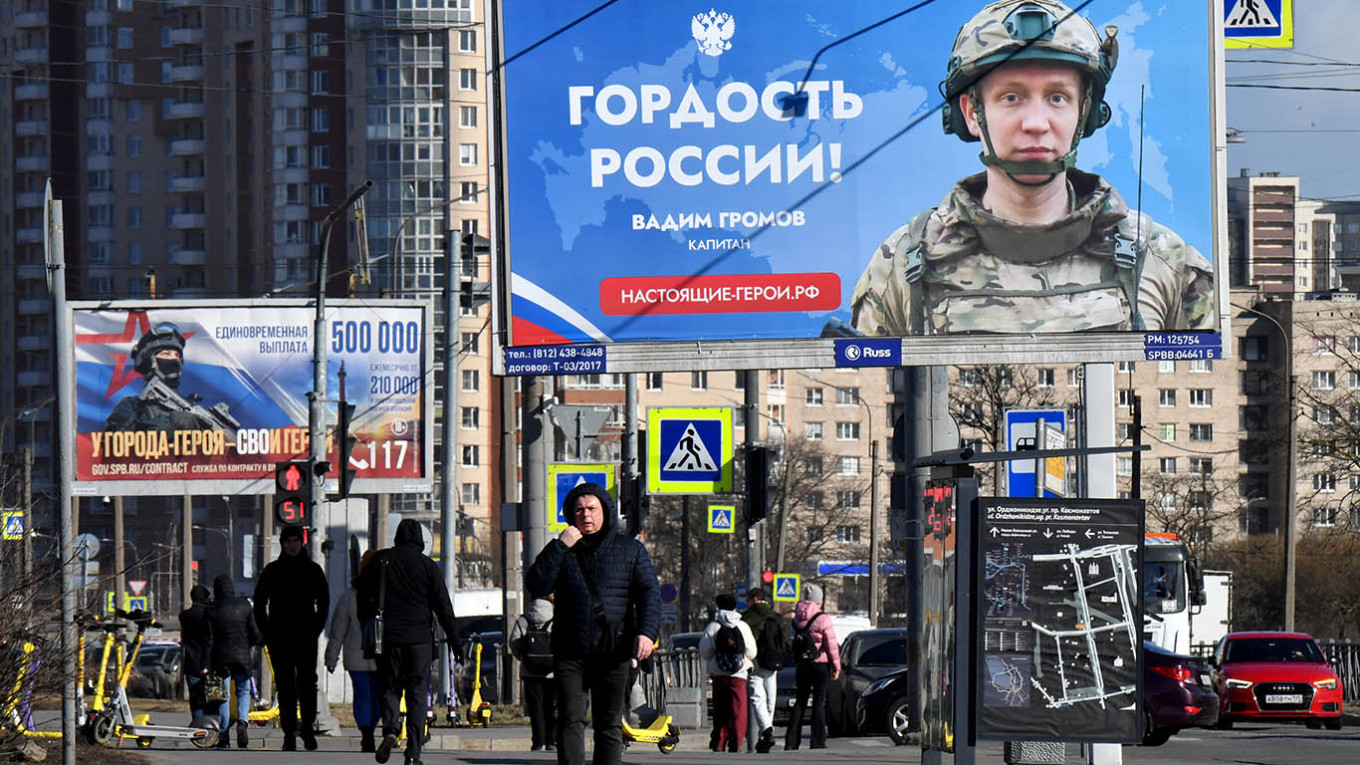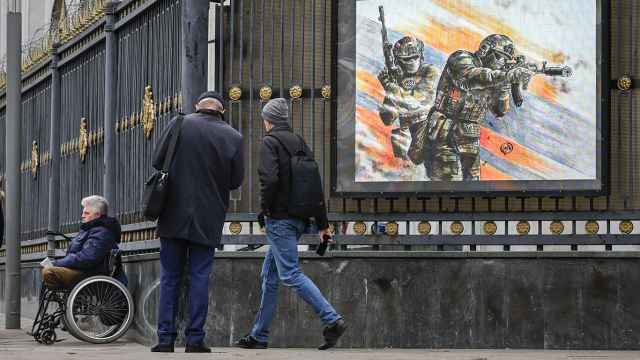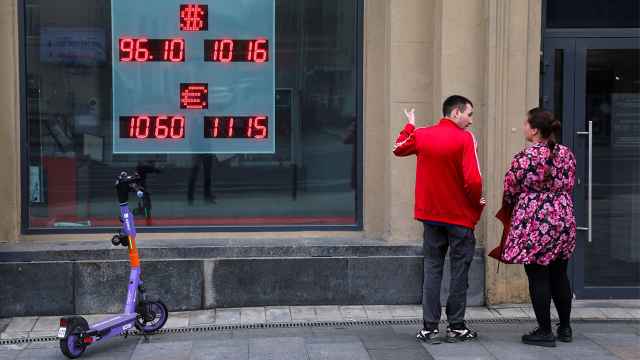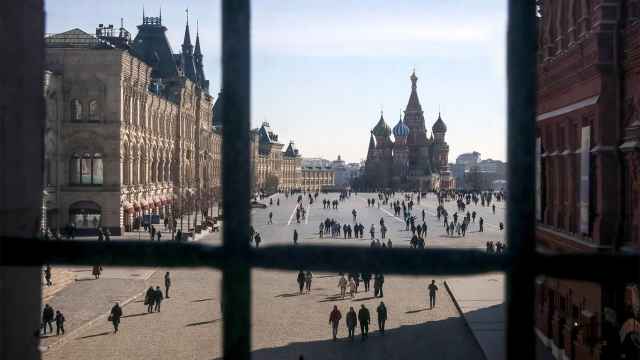The conventional wisdom is that President Vladimir Putin’s war has showered Russians with newfound wealth.
Workers, we are told, are raking it in, especially in industrial cities that languished after the breakup of the U.S.S.R. Once‑depressed towns now hum with overtime shifts, while soldiers are lured to Ukraine by signing bonuses running into the millions of rubles plus hazard pay, injury compensation and — grimly — generous benefits for their families in case of their death.
Nor is the bounty confined to the trenches. Truck drivers boast salaries that would make the tech sector envious.
The data appear to confirm the boom. The government claims real disposable income surged 8.4% in the first quarter of 2025. The number of people living in poverty allegedly fell by 2 million, to 8.1% of the country’s population. Average monthly wages hit 97,000 rubles ($1,240). The verdict looks clear: Russians are thriving.
But reality paints a different picture. Thirty-eight percent of Russians have no savings at all. Another 24% could last only a month or two without a paycheck.
Financial advisers say every household should keep six to twelve months of expenses in reserve. Only 7% could save enough for half a year, and just 6% for longer. Those savings would only cover bare subsistence, not an affluent lifestyle. Even the lucky few rarely have more than half their annual income saved.
Perhaps Russians have simply forgotten how to save? Hardly. For two decades, Russians have had to spend about 30% of their income on food. As salaries rise, that share should come down. But it has not. In the developed world, food accounts for less than 20% of household budgets. In the United States and Singapore, it is under 7%.
The headline wage of 97,000 rubles — $1,240 — is hardly dazzling. Serbia, hardly an economic powerhouse, now posts a higher average net salary.
The winners of Russia’s wage growth are the already well‑off. Inequality has returned to post‑Soviet highs, while incomes only clawed back to their 2013 level in 2023.
No wonder one in three Russians cannot afford essential medicines. Physicians have adapted, prescribing the miraculous properties of oak bark for cancer or plantain for anxiety. It resembles the old Soviet joke in which doctors advised rich patients to eat fruit, middle‑class patients to eat vegetables and the poor to take long walks. Fresh air may soon be back on prescription pads.
What of the unprecedentedly rising incomes trumpeted by state media? These, too, are misleading. If you look more carefully, you will see that those well-paid contract soldiers have to spend their salaries on their own uniforms and bribing their own commanders. What remains might cover a seaside holiday or a few gifts for family members. Even the cars supplied to the relatives they leave behind in this life are hardly a sign of wealth in the 21st century.
Those supposedly flush couriers log 14 to 16‑hour shifts without breaks. If they limited themselves to normal hours, their pay would drop to 60,000 rubles ($760).
Meanwhile, the rich are flourishing. The tally of Russian billionaires has jumped from 100 to 146 in a single year and most have padded their fortunes. Senior officials, legislators and their entourages are similarly comfortable, without even accounting for the vast unofficial income earned through corruption.
The pattern is eternal: the rich grow richer, the poor poorer, the rest cling to appearances, often by going into debt.
For two years, economists have asked whether President Vladimir Putin can afford his war, and the consensus seems to be yes. But the Soviet Union could still afford its wars in 1988. Tanks kept rolling off the lines until the very end. What it could not afford was its people — hence the empty shelves that hastened its collapse.
Putin will always find money for his war. It is less certain whether he will find money for his own people. Unlike Mikhail Gorbachev, he shows no reluctance to use violence to maintain control. Will he do so when — not if — the shelves start to empty?
A Message from The Moscow Times:
Dear readers,
We are facing unprecedented challenges. Russia's Prosecutor General's Office has designated The Moscow Times as an "undesirable" organization, criminalizing our work and putting our staff at risk of prosecution. This follows our earlier unjust labeling as a "foreign agent."
These actions are direct attempts to silence independent journalism in Russia. The authorities claim our work "discredits the decisions of the Russian leadership." We see things differently: we strive to provide accurate, unbiased reporting on Russia.
We, the journalists of The Moscow Times, refuse to be silenced. But to continue our work, we need your help.
Your support, no matter how small, makes a world of difference. If you can, please support us monthly starting from just $2. It's quick to set up, and every contribution makes a significant impact.
By supporting The Moscow Times, you're defending open, independent journalism in the face of repression. Thank you for standing with us.
Remind me later.






